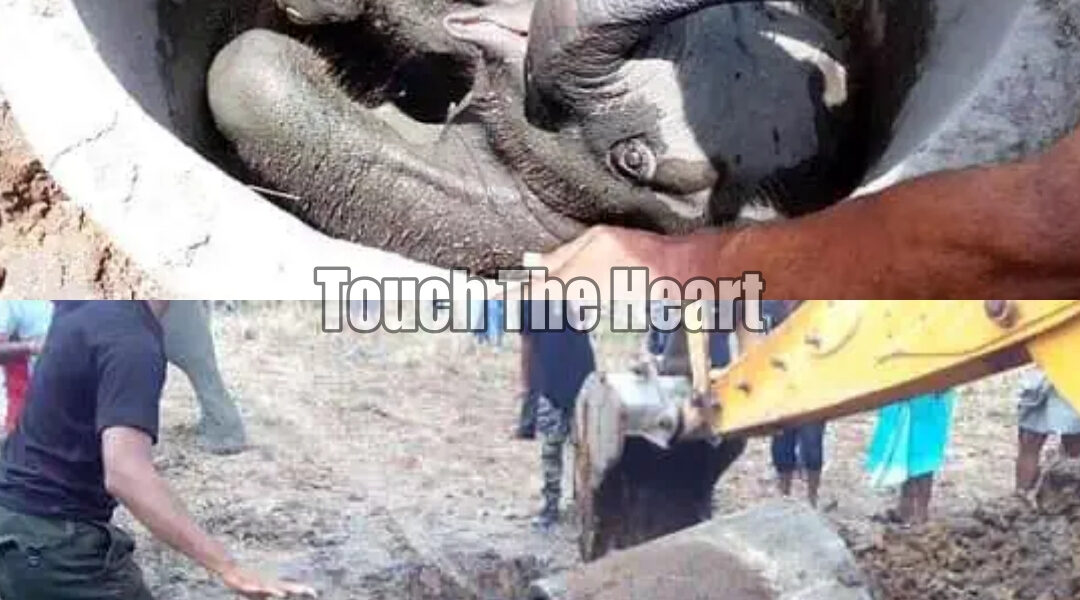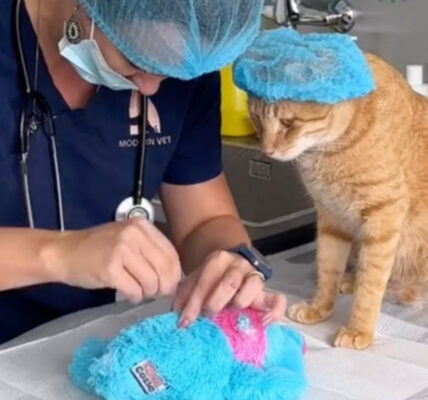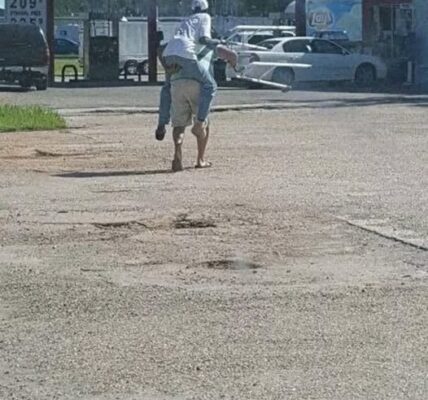The night had been quiet until the sound of desperate trumpeting echoed through the small village. It wasn’t the usual call of elephants passing by — this was something different. Something filled with fear.

When the villagers followed the sound, their lanterns glowing in the dark, they found the source — a baby elephant, trapped deep inside an old well. Mud clung to its tiny body as it struggled, trumpeting helplessly for its mother, who cried back from the nearby forest.
The sight pierced every heart that saw it.
The Cry for Help
At first, the villagers could hardly believe their eyes. The calf must have slipped into the well while wandering too close, chasing the scent of fruit or water. Its small frame shook with exhaustion, its wide eyes glistening with terror.
Without hesitation, the villagers began to act. Buckets, ropes, shovels — anything that could help. They shouted instructions, tied knots, and worked together under the fading moonlight.
Hours passed, and the baby grew weaker. Every few minutes, it let out a cry — long, trembling, heartbreaking — answered by the distant rumble of its mother, pacing anxiously just beyond the trees.
But then something extraordinary happened.

As the rescue dragged on, the villagers noticed tears streaming from the calf’s eyes. Not from injury, not from dust — but from pure emotion. Thick, wet tears rolled down its cheeks, glistening in the flickering light.
And they didn’t stop.
For nearly five hours, as the people worked and comforted the frightened creature with soft voices and gentle touches, the little elephant cried. It was a sight no one there would ever forget.
The Rescue

The well was deep, and the ground around it soft and crumbling. Each attempt to lift the baby out risked causing more collapse. But the villagers refused to give up.
They dug carefully around the edges, widening the space to create a slope. Others used ropes to stabilize the calf as it tried to climb. The men’s hands blistered, the women fetched water and food, and the children stood back, whispering prayers.
Finally, after hours of struggle, the calf found its footing. With one last heave from the rescuers and a cry of determination that echoed through the dawn, the baby elephant scrambled free.
The crowd erupted in cheers — some laughing, some weeping openly. The tiny creature stood trembling, its body caked in mud, its breaths coming fast and uneven. But it was safe.
And then came the moment everyone had been waiting for.
The Reunion

From the forest edge, a deep trumpet rang out. The mother had been waiting — calling, pacing, refusing to leave.
The calf froze, turned its head, and then ran — clumsy, stumbling, but full of life — toward the sound.
The mother rushed forward, trumpeting wildly as she reached her baby. The two collided in an embrace that silenced the crowd. She wrapped her trunk around her calf, touching its face, its body, as if to make sure it was real. The baby buried its head against her chest, still trembling, still crying — but this time, from relief.
For several minutes, they stayed that way — mother and child, together again, framed by the rising sun.
Some of the villagers turned away, wiping their eyes. They had seen many things in their lives, but never a moment like that — so raw, so pure, so human in its tenderness.
A Lesson from the Wild
When the elephants finally disappeared back into the forest, the villagers stood in silence. No one spoke. No one needed to.
Word of the rescue spread quickly. Photos and videos shared online captured the baby’s tear-streaked face, the villagers working through the night, and the joyous reunion at dawn. Within days, millions around the world had seen it — and countless hearts were moved.
Scientists confirmed that elephants, like humans, can cry from emotion — from distress, grief, and even joy. And this little calf had shown it more clearly than words ever could.

But beyond the science, what people saw was something deeper — a reminder that empathy is not limited to humans. That love, fear, and relief belong to all living beings.
The villagers became local heroes, but they dismissed the praise. “We only did what anyone would do,” one elder said. “The mother cried for her child. How could we ignore that?”
The Tears That Changed Hearts
Even now, long after that night, people still talk about the baby elephant who cried — not because it was trapped, but because it felt.
It taught a village, and then the world, that compassion is not a privilege — it’s a duty. It flows between species, between hearts, between all who share this fragile earth.
And somewhere out in the forest, a mother and her child walk side by side again — their bond unbroken, their story a living testament to love that knows no boundaries.
Because sometimes, even in the wild, the purest tears fall not from weakness — but from love.




